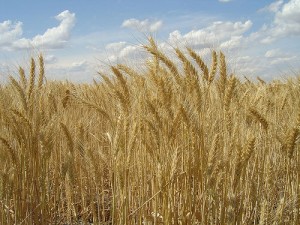A recent study from Switzerland tracks some abnormal effects in genetically engineered wheat. According to the data, the wheat grew normally in a greenhouse environment. Under these same conditions, the wheat also had better resistance to various fungal diseases that pose significant threats to the crop. But when the wheat was introduced to changing environmental conditions, the metabolism of the plant showed an unusual reaction. The wheat became extremely affected by ergot disease, a toxic fungal disease. The genetically engineered wheat yield, under changing environmental conditions, was also 50% lower than the control, unmodified wheat crops.
Testbiotech, a German expert group, has suggested that all genetically modified (GM) plants should be subjected to “stress tests” before being released into the environment. Christoph Then, a member of Testbiotech, states: “The results from Switzerland show a huge gap in the risk assessment of genetically engineered plants. So far, we don’t know enough about how these plants behave under certain environmental conditions such as climate change. The technically inserted gene sequences are not under the control of the plants” genome regulation. Their stability needs to be tested systematically under various conditions.”
There remains little published on the subject of GE plants under environmental conditions. Some possible unintended consequences include: the plant producing a higher content of toxic compounds, higher infestation of pests and loss of yield. Testbiotech insists more in-lab data must be acquired before the genetically engineered wheat should be allowed in open-environment conditions.
Genetically engineered organisms (GEOs) are formed through various techniques. Primarily, scientists use recombinant DNA technology. Using DNA from other sources, researchers will infuse an organism with new DNA to create a hybrid species. In plants, this technology is intended to make the organisms pesticide-resistant and to yield more crops. But GEOs are highly subject to debate. Safety concerns remain the largest complaint. The Organic Consumers Association’s website states, “Genetically modified (GM) crops are not required to go through any type of independent safety peer review to determine if they are safe for either human consumption or the environment.”
There is no U.S. legislation regulating genetically modified organisms. The only court decision on the matter discusses patent rights in the Supreme Court’s Monsanto v. Schmeiser. The court ruled in a 5-4 decision that Monsanto has the right to patent genetically modified seeds of their design.
Author: Shannon Gombos
Click here for the original article.




超激安
Generally I do not read article on blogs, however I would like to say that this write-up very
compelled me to check out and do so! Your writing style has
been amazed me. Thank you, quite nice post.